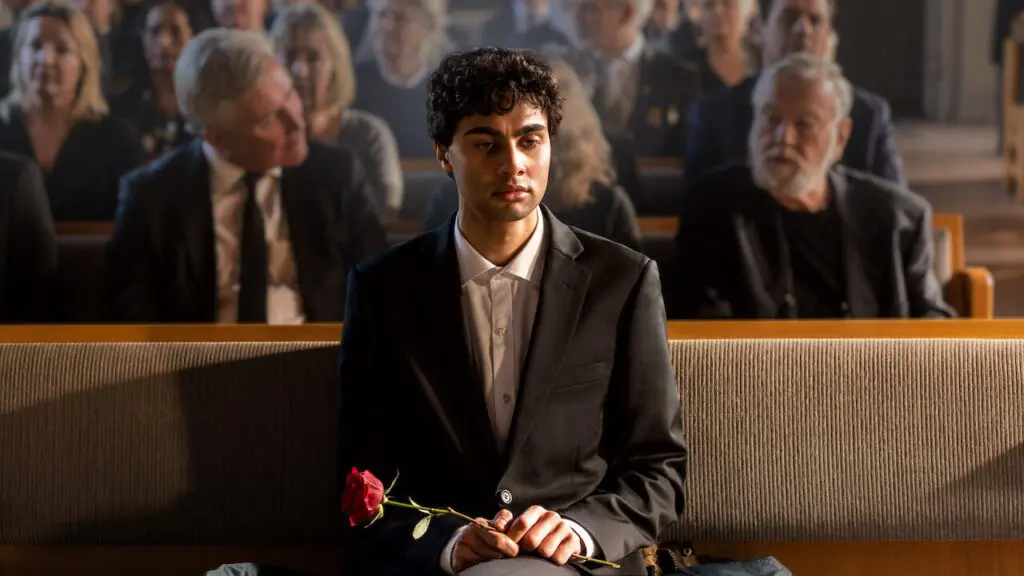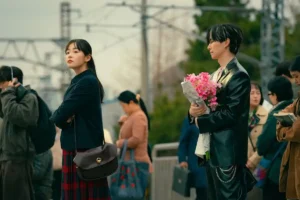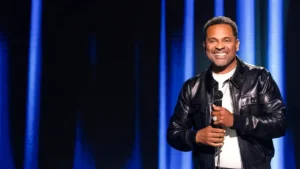Summary
Tore is a fantastic depiction of grief and loss that plays the expected genre beats with aplomb and ultimately resonates on a much deeper level than most streaming fare.
Tore isn’t your average comedy-drama, and it’s important not to let Netflix’s predictable marketing sell it as simply a Scandi equivalent of their own Sex Education. It’s funny, sure, and a bit risqué, as you’d expect. But it’s also a wrenchingly poignant exploration of grief and loss, and it’ll wreck you given half a chance.
Scandi dramas – Tore is Swedish – are known for being cold, in terms of their settings and often their characters. It’s nice to see a streaming series from the region that isn’t a cynical, wintry crime drama. This is six episodes of legitimate introspection, a misty-eyed look at having to find oneself in the absence of the very person who was supposed to show you where to look.
Plot-wise things are simple enough. The show’s creator and writer, William Spetz, plays the titular Tore, an inexperienced and socially clueless 27-year-old who lives with his father, Bosse (Peter Haber), and works in the local funeral home. He’s quite content with his sheltered life until his dad is suddenly and tragically run over and killed.
Adrift, Tore is crippled by grief that he doesn’t understand or know how to process. Naturally, he runs from it and tries to dull its pain with various numbing agents; the excess and debauchery characteristic of aimless twenty-somethings and, indeed, of shows like this. Tore excels in the depth and authenticity of its title character’s grief, and its warts-and-all portrayal of how his bad decisions and the stark learning experiences they create begin to shape him into a man who can stand on his own two feet.
A simplistic and slightly childish expectation that people tend to have of entertainment media is that protagonists should be, in some sense, likable. Tore isn’t. He makes bad – nay, terrible – choices frequently; he’s sheltered and awkward and, to be frank, a little pathetic. He’s difficult to like by design, though, because on a deep level, he doesn’t like himself, or at least the position he finds himself in. The show asks for patience in highlighting Tore’s flaws so that he can understand and learn from them.
Some viewers will, inevitably, refuse to empathize with Tore. They’ll find his self-destruction tiring or lack the empathy to understand him. That’s fine. But it’s not, I don’t think, a detrimental quality of the series, a box in the negative column you can idly check. Good art is often polarizing by design.
Tore also isn’t entirely about Tore. It’s also concerned with the people around him; his supportive best friend Linn (Sanna Sundqvist), whose sympathies he rejects, or the florist Erik (Hannes Fohlin), or the dark influence, Viggo (Victor Ivan), who leads Tore to numb instead of heal. These supporting characters have their own arcs, feelings, anxieties, and personalities, and they’re brought to life by a game cast who fit neatly into the show’s grounded world but lend the drama towering emotional stakes.
Some of it you have, admittedly, seen before. Nothing here is new. But that’s almost beside the point. Sometimes these perennial genre fixtures are employed for good reason – because they make the right point, or provide the right excuse for a stylistic flourish or awkward comedy beat. But the lighter moments of Tore – of which there are plenty – are tempered by a sense of real dread, thanks in part to the unexpected suddenness of that early death.
Nobody, at least by the usual Netflix standards, will watch Tore, which is very much a shame. It isn’t the kind of flashy, attention-grabbing fare that a streaming platform likes; I can’t see it being thrust to the top of the weekly rankings or whipping up a storm on social media.
This hardly seems to matter, though. Tore is the kind of show that a certain type of person will see at just the right time in their life, and it isn’t hyperbole to suggest it will change them. It’ll help them understand themselves and the world a little better, it’ll make them laugh and cry, and they’ll emerge slightly better after six episodes, more confident, more reflective people for having seen it.
A star rating hardly seems to be the point.
Read More: Tore Season 1 Ending Explained




